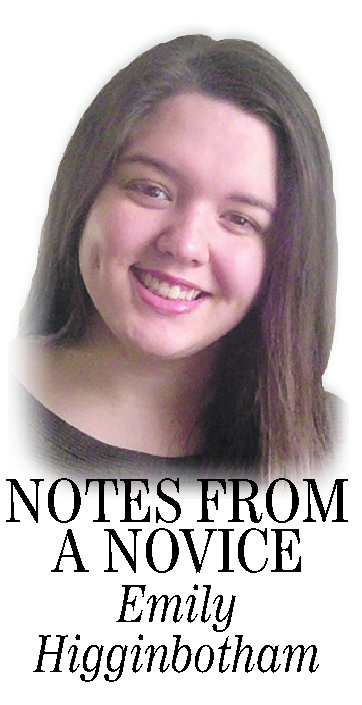A few weeks ago I woke up, checked my phone and saw a notification I wasn’t expecting. It wasn’t a presidential tweet storm or a news alert reporting another missile launch from North Korea (thank God).
It was a Facebook event inviting me to Sacred Heart-Griffin’s class of 2012 five-year reunion.
With the invitation came a rush of several varying emotions: A bit of excitement, as there would be a lot of people there I haven’t seen in a long time. A wave of anxiety, as there would be a lot of people there I haven’t seen in a long time. There was some nostalgia for a time when everything around me felt familiar and predictable. A flash of incredulity that it had only been five years since I graduated from high school, when it really feels like 10. And lastly, I felt my competitive drive switch on.
High school reunions reek of clichés and worn-out movie motifs. There are the nerds who grow up, discover contact lenses and learn how to turn their smarts into cash. The popular and pretty people who peaked at 18 and can’t let go of how they absolutely used to rule the school. The mean girls who finally get what’s coming to them. There are the burnouts who are still, well, burnouts. And then there are the people who show up with something to prove — that everything you thought about them before is wrong; they’re nothing like how they were in high school.
Any way you dice it, it’s all about what you’ve accomplished; it’s all about success. How much money do you make? What’s your job title? What’s your relationship status? How well are you really doing?
It’s the dynamic portrayed in the iconic ’90s cult comedy, “Romy and Michele’s High School Reunion.” The two blonde best friends — ditzy but earnest — go to extremes to impress their former classmates who treated them as social lepers. Hilariously, they tell everyone that together they invented Post-It notes — an invention with an obscure enough origin that they think they can pull it off. They don’t, but you understand the concept.
If you cut through all of the heavy-handed character archetypes, there is a root of truth to the premise: We’d all like to be considered a success by our peers, especially if you think the notion people hold of who you are is not representative of who you’ve become.
That’s when my competitive instincts gave way. I started asking whether I could consider myself a success. Maybe. But how does that stack up with others? I’m working in my field, but am I where I should be? How does my salary compare? Am I doing well in life?
Then I stopped myself. At 23, I can’t fully answer these questions. I’ve only really just started to figure out who I am and what I want in a career, let alone a life. Success cannot yet be ascertained.
Additionally, I know that I’ll never be a superlative. You won’t find me in the yearbook as ‘best’ at anything. No one voted me most likely to succeed. That’s not me, and it’s probably not a practical or honorable aim.
However, I wonder, at these milestone moments in our lives, what are the metrics by which we ought to be measuring ourselves? Beyond the superficial, how can we determine meaningful, personal growth?
I think among the questions at the core of this evaluation include a couple of simple and broad inquiries: Am I a better person than I was five years ago? Am I a source of good in the world?
Hopefully, we can all say “yes.” If we’re honest, we’d say there’s room to improve; but we’re doing our best.
And then we can probe ourselves with more specificity: Am I pursuing a passion? Do I try to meet others with empathy? Am I educating myself on subjects about which I am ignorant? Do I call my parents enough? Am I a good friend? Am I proud to take ownership of my actions?
Many of us fall short. We’re not at our best, and we’re probably not even close. Still, maybe that’s not quite so important yet, either. At 23 or 33, or at our parents’ ages or our grandparents’ ages, we’ll still likely be working on the answers to some of those questions.
Perhaps the best way we can measure ourselves accurately is to acknowledge that we’re trying.
Five years after graduating from high school, I can’t say that I’m a success, but at least I’m on the right track.
Emily Higginbotham, originally from Illinois, is a copy editor at the Kennebec Journal and Morning Sentinel. You can follow her on Twitter: @EmilyHigg. Or reach her by email: ehigginbotham@centralmaine.com.
Send questions/comments to the editors.



Success. Please wait for the page to reload. If the page does not reload within 5 seconds, please refresh the page.
Enter your email and password to access comments.
Hi, to comment on stories you must . This profile is in addition to your subscription and website login.
Already have a commenting profile? .
Invalid username/password.
Please check your email to confirm and complete your registration.
Only subscribers are eligible to post comments. Please subscribe or login first for digital access. Here’s why.
Use the form below to reset your password. When you've submitted your account email, we will send an email with a reset code.